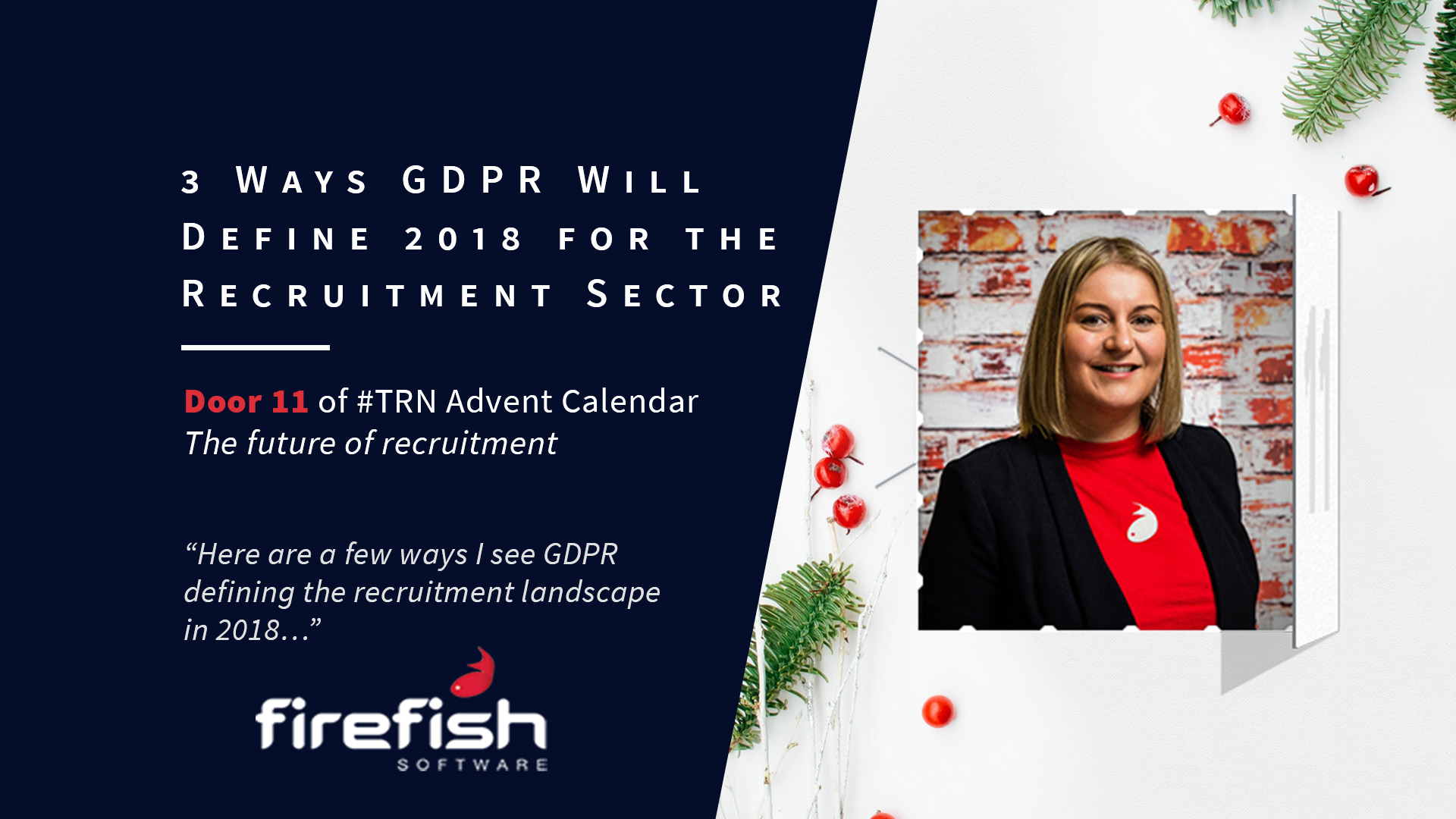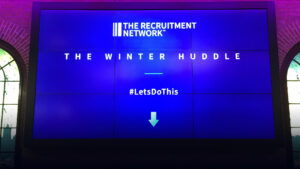Door 11 of our #TRN Advent Calendar. Wendy McDougall on 3 Ways GDPR Will Define 2018 for the Recruitment Sector. The General Data Protection Regulations (GDPR) will officially begin rolling out in 2018, and this is set to have a major impact on how recruitment businesses currently operate. There are a lot of things we currently do as an industry that simply won’t stand once these new regulations are imposed, and it’s interesting to make some predictions about how the next year will look as a result.
So here are a few ways I see GDPR defining the recruitment landscape in 2018…
A genuinely engaged recruitment database will be the norm
Gone are the days of flaunting your ‘15,000-strong candidate database’ when pitching to a new client – in 2018, it’ll be all about database engagement levels. And whilst many of us would like to think our database engagement is high, in reality the current industry average is just 15-25%!
Under GDPR, you’ll need to prove that your data is engaged or risk having to delete it from your records entirely, and this is set to really transform how we talk about data in coming years. In future, you’ll no longer be talking up those 15,000 candidates you have on your database, but rather you’ll be showing off your 85% engaged database instead.
The recruiter-candidate relationship dynamic will change
As a result of GDPR, we’re also going to see a notable change in the recruiter-candidate relationship dynamics. As candidates will be encouraged to have more autonomy and control over their own personal data, the tendency to think of candidates as property – and of data management as a form of stock control – will be well and truly buried.
Instead, candidates will be responsible for keeping their own information updated via their candidate portal, and the recruiter’s task will be to regularly check in, touch base, and ensure the relationship is kept warm rather than simply keeping data up to date. Next year, strengthening your relationships and networks will matter more than ever before.
Your word will no longer cut it
At its core, GDPR is all about proof and accountability. Therefore, it’ll no longer be sufficient to claim, for example, that you were given verbal consent for storing their personal data. From next year, you’ll need to be able to provide a clear audit of when and how you got this consent. To do this, you’ll need to include the ability for your candidate to agree to your GDPR agreement via all your web journeys online, have a script in place for receiving verbal consent on every phone call, and ideally be using recruitment software that offers voiceover IP with recorded calls, so there’s always easily-accessible proof to back up your actions.
Providing documentation and digital paper trails of your decisions and actions taken will be the standard, and again – it’s likely that most recruitment businesses will rely on software to do this efficiently and to minimise extra workload. I believe this way of working will bleed into other areas of the business, too. Using your updated and accurate data, you’ll be going to clients with much more solid and reliable data, and be able to pitch and present ideas with great confidence in your figures.
So whilst the current trend amongst the recruitment sector is to recoil in fear at the mere mention of GDPR, it’s clear that the regulations will be bringing some welcome (and, in my opinion, much needed) changes. In fact, I’ll be bold and even go as far as saying… the future of recruitment looks bright under GDPR!
Wendy McDougall is the CEO and Founder of Firefish Software. Firefish Software is a sales and marketing platform that helps recruiters reach, engage and recruit top candidates before their competitors and was born out of a high performance recruitment team. They were frustrated with the limitations of the recruitment software on the market, so in 2006, they started to develop their own.At the time Wendy was running her own IT recruitment agency and they used Firefish in-house and it became a big selling point for the agency, winning them the Onrec award for Best Use of Online Recruitment. In 2010, Firefish spun out into a business in its own right.
Share :




